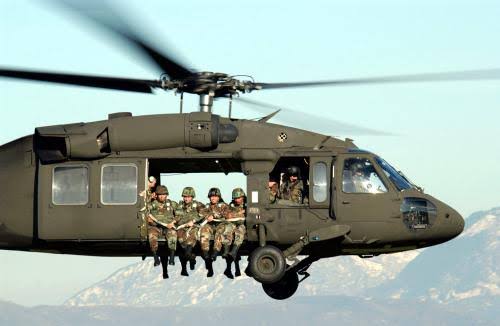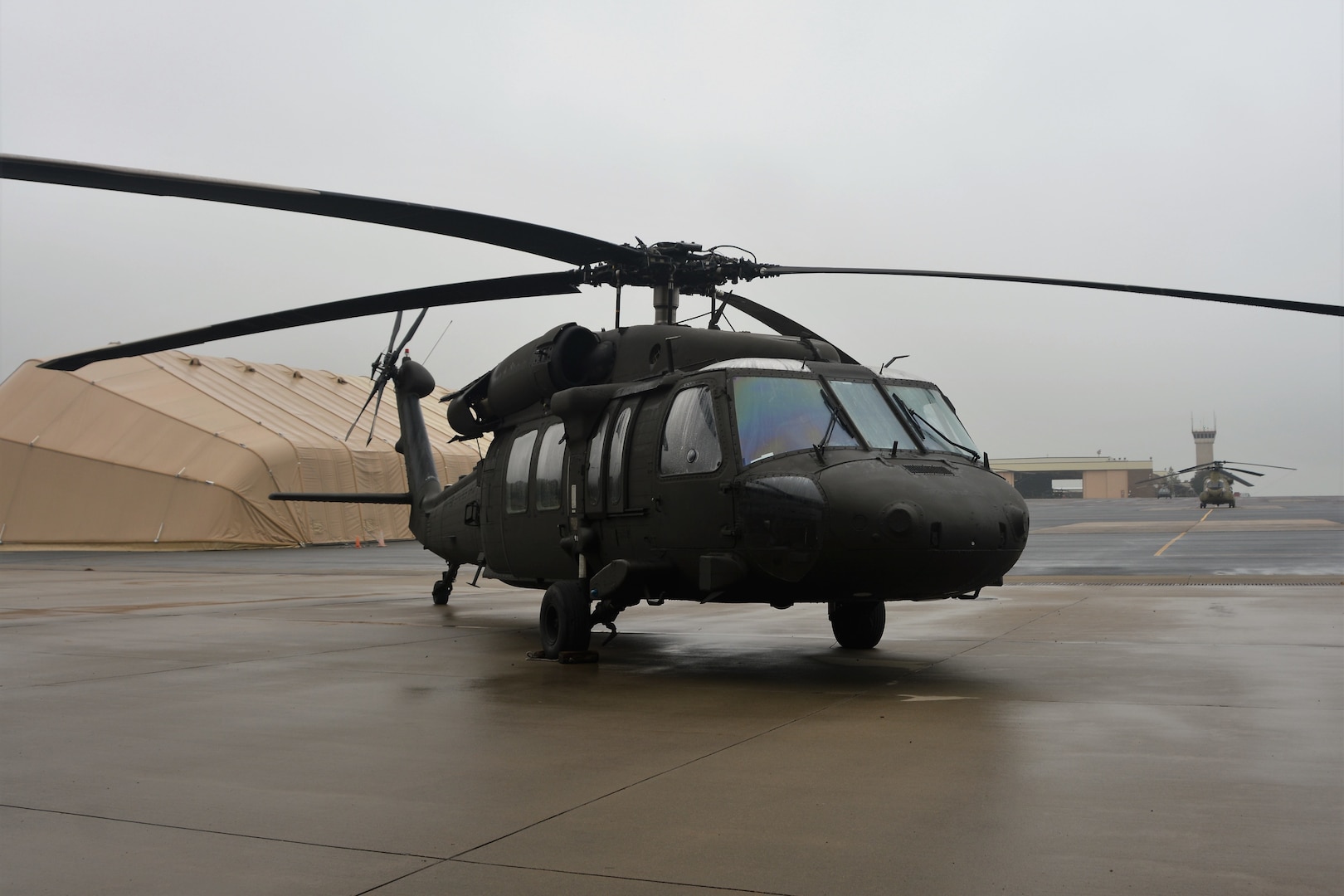The Function of UH 60 in Modern Armed Force Operations
The Function of UH 60 in Modern Armed Force Operations
Blog Article
The Duty of Airplane in Forming International Transportation and Trade Characteristics
The evolution of aircraft has indelibly changed global transport and profession characteristics, facilitating unmatched degrees of connectivity and effectiveness. With the facility of durable air freight networks, organizations can now navigate international markets with impressive speed and agility, thereby redefining supply chain strategies. This improvement is not without its obstacles, as the air travel industry grapples with sustainability problems and governing pressures. As we explore the diverse influences of airplane on worldwide trade, it is necessary to think about exactly how these variables will form the future landscape of aeronautics and its function in the economic climate.

Evolution of Air Transport
The advancement of air transport has actually been noted by substantial technological developments and advancements that have actually transformed the method people and products cross the world. From the Wright siblings' first powered flight in 1903 to the advancement of supersonic jets, each landmark has actually underscored the unrelenting quest of effectiveness and rate in air travel. Early airplane were mainly primary, restricted by engine power and architectural stability. The introduction of advanced products and the rules of aerodynamics in the mid-20th century led to substantial improvements in aircraft performance, safety, and reliability.
The latter component of the 20th century saw the development of business aviation as a practical mode of transport, identified by the intro of jet engines, which transformed flight by substantially reducing trip times. In addition, innovations in navigation and interaction modern technologies have enhanced functional efficiency and safety, permitting more complex trip courses and schedules. The increase of air cargo in parallel with passenger services has further underscored the flexibility of aviation. As we aim to the future, emerging innovations such as electric and independent airplane guarantee to redefine the air transportation landscape, ensuring continued advancement and adaptation to global needs.
Influence On Global Profession
Air transport has actually exceptionally improved global trade by helping with the swift activity of products throughout huge distances. This expedited logistics capacity enables services to react rapidly to market needs, therefore enhancing supply chain efficiency. The capability to deliver perishable goods, high-value things, and time-sensitive items has actually opened up brand-new markets and possibilities for different industries, considerably affecting trade patterns.
In addition, the advancement of air freight networks has cultivated globalization, enabling firms to resource products and products from various components of the world effortlessly. This interconnectedness decreases lead times and expenses, permitting organizations to stay affordable in a progressively global marketplace. Furthermore, air transport plays an important function in ecommerce, where consumer expectations for fast shipment have actually driven a surge in demand for air cargo services.
The effect of aircraft on global trade includes the development of critical trade paths, connecting regions and assisting in worldwide partnerships. Nations that buy air transportation framework frequently experience boosted economic growth and enhanced international straight financial investment. Generally, the evolution of air transport has not just transformed the logistics landscape but has also become an important component in the dynamics of international trade.

Economic Advantages of Aeronautics
A durable aeronautics market produces substantial economic benefits, contributing to job creation, tourism, and total financial growth Source - uh 60. The aeronautics sector supports countless work worldwide, varying from straight employment in airlines and airport terminals to indirect roles in fields such as hospitality, transport, and logistics. According to sector records, for each task in the aviation field, approximately 3.5 extra work are developed in the more comprehensive economic climate
Tourist is a critical element of the economic benefits acquired from air travel. Air traveling helps with international tourism, allowing travelers to discover diverse destinations, which subsequently stimulates local economies. Nations that purchase their aeronautics infrastructure usually experience boosted traveler arrivals, leading to higher costs on solutions such as attractions, hotels, and dining establishments.

Furthermore, aeronautics boosts global connectivity, enabling businesses to access new markets and sources successfully. As an outcome, markets such as ecommerce and production advantage immensely from trustworthy air transport, additional driving economic expansion.
Difficulties Encountering the Aeronautics Sector
Navigating a complex landscape of regulatory, ecological, and economic challenges, the aviation market deals with substantial obstacles that threaten its sustainability and development. Laws surrounding security and protection are consistently progressing, requiring ongoing conformity and adjustment from airline companies and manufacturers (uh 60). This can lead to enhanced functional costs and source allocation that interferes with technology and growth initiatives
In addition, ecological issues have come to be paramount, with expanding analysis over carbon discharges and noise contamination. The sector is under pressure to adopt greener techniques and technologies, which usually require significant financial investment in research study and growth. Stabilizing these environmental duties with the demand for flight presents a significant obstacle.
Economic changes, such as rising fuel costs and geopolitical uncertainties, further make complex the landscape. Airline companies regularly face unpredictable operating expense and changing traveler need, which can impact productivity and long-term planning. Labor shortages and skill spaces in critical areas include another layer of intricacy, preventing functional efficiency.
Inevitably, dealing with these multifaceted challenges is crucial for the aviation market to maintain its essential role in international transportation and profession, while making certain resilience and pop over to this web-site versatility in a progressively competitive market.
Future Patterns in Flight
Changing and arising technologies consumer choices are positioned to reshape the future of air travel significantly. The assimilation of expert system and our website artificial intelligence is anticipated to improve functional performance, enhance flight terminal procedures, and boost customer service. Anticipating analytics will facilitate much more accurate demand projecting, allowing airlines to maximize flight timetables and rates designs.
Sustainability is ending up being a key motorist in flight, with the aeronautics industry increasingly concentrated on lowering carbon discharges. Advancements in airplane design, such as electric and hybrid propulsion systems, are being checked out to fulfill ecological targets. Moreover, the fostering of sustainable aeronautics fuels (SAFs) is anticipated to play an essential function in attaining net-zero discharges by 2050.
Consumer preferences are changing in the direction of individualized travel experiences. Airlines are investing in innovative information analytics to tailor services and boost consumer involvement, making certain a more personalized trip from scheduling to arrival. Furthermore, the increase of remote job might result in raised need for leisure travel, as people seek to combine work and vacation.
Final Thought
The evolution of air transport has actually changed international trade, generating significant economic advantages while likewise presenting challenges that require critical administration. The ongoing adaptation of the air travel sector will certainly be important for maintaining its payments to the international economic situation.
The latter part of the 20th century experienced the appearance of industrial air travel as a sensible mode of transport, identified by the introduction of jet engines, which transformed air traveling by substantially decreasing trip times. The increase of air cargo in parallel with traveler services has actually further highlighted the flexibility of aviation. In addition, air transportation plays an important function in shopping, where customer assumptions for rapid distribution have driven a rise in demand for air products services.
Overall, the evolution of air transportation has not only transformed the logistics landscape yet has likewise become a crucial component in the characteristics of global trade.
Sustainability is becoming a key motorist in air travel, with the air travel industry increasingly focused on reducing carbon exhausts.
Report this page